I am writing this article in despair. Not because my alma mater, Boğazici University—one of the most prestigious universities in Turkey where I taught for almost 25 years—has been the target of Turkish president Recep Tayyip Erdoğan’s latest invective. Not because I find the reactions from the Boğazici community lacking in any way to Erdoğan’s unfair accusation that theirs is “a failed institution because it did not align with national or local values” (read: Islamist and provincial). My former colleagues responded with the kind of sound arguments and respectful language that can only come from those who believe in freedom of thought, critical thinking, and civility.
I am writing in despair because all the arguments in favor of academic values, science, and critical thinking will surely fall on deaf ears in the current Turkish administration. There is no point in trying to explain to Erdoğan and his Justice and Development Party (AKP) circles—which ironically include many Boğazici degree-holders—that the primary mission of a university is to produce knowledge by nurturing curiosity and encouraging independent research. Sadly, it is no use to tell them that this is a kind of mission that cannot change with the vagaries of a political system or a leader, neither in Turkey nor elsewhere. If anything, the term “university” suggests an orientation towards “universal” standards to achieve “universal” knowledge. Then again, it was this sense of universality that made Boğazici a sanctuary at one time to devout women who sought education without having to give up their headscarves. The university did not bend to the whims of what has been termed “aggressive secularism,” the tide that swept the political system in the 1990s. Why should it now be compelled to refashion itself after a vague concept that Erdoğan presents as “our national and local values”?
Erdoğan’s claim that Boğazici is not an inclusive institution is wrong. He well knows that Boğazici counts a student body from all parts of Turkey, including several AKP strongholds. His accusation that Boğazici is associated with the Gülen movement that seeks his downfall is also wrong. He knows that as well. Then again, Erdoğan does not aim to be coherent, he wants to strike. His words on Boğazici is the latest manifestation of his ongoing civilizational duel with the West. Being the politician that he is, he knows that anti-Western vitriol sells extremely well in Turkish domestic politics. Furthermore, he comes from an ideological background that rejects and resents Turkey’s Western vocation, ties, and traditions. Anger toward Western countries or leaders is now thrown at the institutions, persons, ideas, or symbols that he deems associated with the West, even if remotely.
The educational sector has long been a target, especially because of its emphasis on the values of enlightenment and science, once adopted from the West. In his effort to raise “pious generations,” he has had the teaching of Charles Darwin removed from national curriculum. He has called on parents not to send their kids to the West for education, lest they become “their agents.” (One should ask, of course, why he sent his own children to American universities: to avoid the whims of the previous prevailing “national and local values.”) This represents the dismantlement of a Turkish educational tradition stretching back to the Ottoman Empire. In fact, Boğazici has its roots in this legacy. It was established as the first American college outside of the United States, then known as Robert College, precisely to support secular and science-based education in place of religious dogma. Its continuing strong ties with the best American and Western educational institutions ever since makes it an easy target for demagoguery.
This represents the dismantlement of a Turkish educational tradition stretching back to the Ottoman Empire.
In a country with a long history of Western orientation—starting in the late 18th century Ottoman state—it is never hard to find material for fiery talks to demonize foreign powers. The Turkish state, legal, business, and educational systems are a product of a long-time integration process with the West—a bumpy ride at times, but also with significant gains. As I argue in my book “Turkey and the West: Fault Lines in a Troubled Alliance,” until the recent downturn, Turkey owed its political stature and economic prospects to its being part of Western institutions. Boğazici greatly contributed to Turkey’s development by supplying high quality education: the higher echelons of the academia, art, business, and bureaucratic-diplomatic world in Turkey have included countless Boğazici graduates. Contrary to what President Erdoğan has suggested, most of its alumni remain in Turkey to usher the country toward a brighter day.
There does not seem an easy way out from Erdoğan’s ongoing war with the West. Boğazici University has found itself in the crossfire but I am confident that it will survive this onslaught, just as it survived the 1877-1878 Russian-Ottoman war, the Balkan Wars, World War I, the transition from empire to a nation-state, World War II, and numerous repressive military interventions. It is its academics standards and emphasis on meritocracy, rather than favoritism, that will help restore Turkey as a beacon—as it stood less than a decade ago—for all nations aspiring to join the ranks of countries governed by the precepts of the Enlightenment. In the meantime, the West and Western-minded Turks will have to continue to brace themselves for more demagoguery and uninformed attacks as well as resistance to their voice of reason.
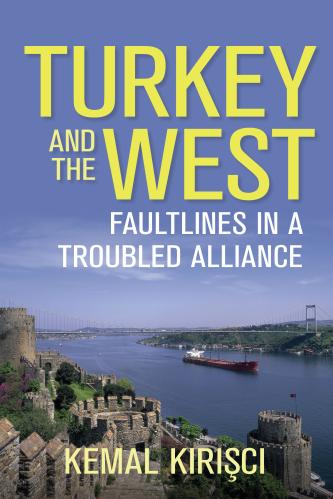
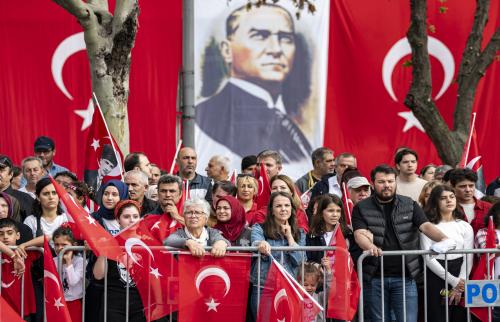
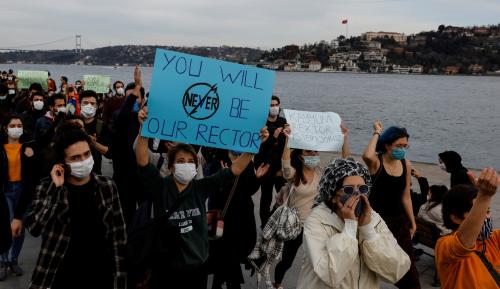
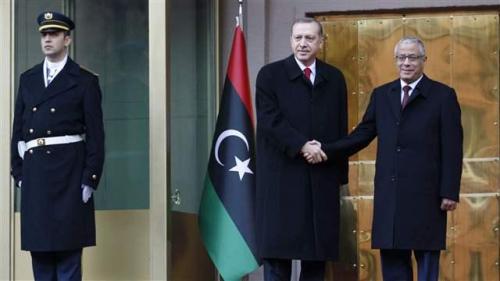

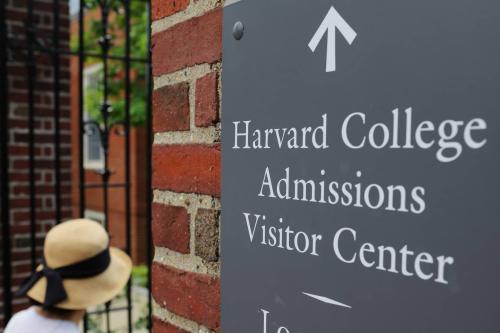

Commentary
Erdoğan’s war on the West turns inward—on Turkish academia
January 22, 2018